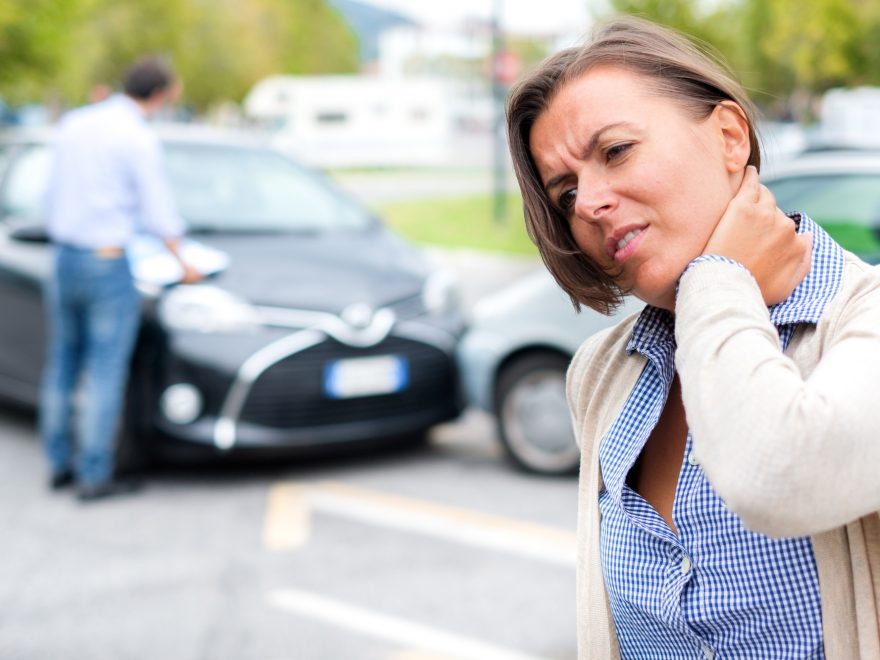A car accident can happen when you least expect it. It’s a scary experience, especially if it’s your first accident.
Right after an accident occurs, you may feel confused about what to do next. That’s why it’s important to prepare for the unexpected.
Knowing the correct steps to take after an accident can help you monitor your health and safety and acquire the documentation you need. This is very important, especially if you or others suffered an auto accident injury.
Here are 7 steps to take following an auto accident.
Seek Medical Help for an Auto Accident Injury
Following an auto accident, you should call 911. If you or someone else has an injury, it’s important that an ambulance arrives as soon as possible.
It is normal to feel stress following an accident. Your adrenaline will be pumping, and this can temporarily decrease pain from an injury.
Try to remain as calm as possible as you assess the situation. You want to check yourself and any passengers or others for any injuries, pain, or shock.
Even if you think you are fine, it’s a good idea to have a medical evaluation. Some serious injuries may not present for hours or even days following an accident.
Some auto accident injuries may result in hospitalization, surgery, or long-term physical therapy. Massage can be a helpful part of auto injury therapy.
This is especially true if you are dealing with sore muscles or stress following an accident.
Ensure Safety
As soon as possible following an accident, you want to get out of the line of traffic and move to a safe area to avoid another accident. You should turn your hazard lights on to alert approaching vehicles that you are there.
If you have emergency road flares, triangles, or flares, use them to warn oncoming traffic. Make sure you call the police because you need written documentation of the accident.
Call the Police
After the police arrive, do not admit fault for the accident. Instead, try to remain calm and explain the events of the accident as clearly as possible.
Even if the accident is minor, it’s best to call the police. And if you think you are at fault for the accident, you should still call the police.
The police should document the findings at the scene of the accident and create an accident report. Some accidents may lead to a lawsuit, and any documentation you have could be very important if this occurs.
If possible, try to get the officer’s name and badge number. Be sure to obtain a copy of the police report when it’s available.
Police officers often testify about their findings in court cases, so you want to speak with the officer and make sure he hears your version of the accident.
Exchange Insurance Information
Following an accident, you should exchange insurance information with the driver of the other vehicle. Write this information carefully or take a picture of their driver’s license and insurance card.
Getting the other driver’s insurance information is the most important piece of information to gather after an auto accident. Without this information, you have little chance of obtaining compensation.
And your insurance company may not pay, especially if they cannot contact the other insurer. If you are unable to gather other evidence, you or someone at the scene should be sure to gather this information.
You should not admit fault for the accident to the other driver. Any admission of fault could be used against you, so it’s best to stay calm even if the other driver is angry.
Stick to the facts and don’t offer your opinion about the accident at this time.
Document Everything
It’s important to document the scene of the accident for your personal records. Some information to gather includes:
- The color, make, and model of the other vehicles
- License plate number of other vehicles
- Note the exact location of the scene
- Exchange Insurance Information
- Get names and contact information of any witnesses
- Note the direction the vehicles involved were traveling
- List any damage you see to vehicles and the location
Don’t worry if you aren’t able to gather all of this information. Just do the best that you can. Chances are the other driver won’t do everything perfectly either.
Take Pictures
If you have a camera or cell phone, take pictures of the accident scene. Do not stand in the middle of the road or put yourself in any danger while taking pictures.
If possible, take pictures of the position of the vehicles before you move the vehicles. Try to take pictures of any auto damage, debris, skid marks, or road construction.
Photographs may be important later for assessing damages or proving liability in court.
Call an Accident Lawyer
If you suffer an injury in a car accident, it’s a good idea to speak to a car accident lawyer. An experienced attorney can take a look at your situation and offer legal advice.
Insurance companies will look out for their best interests and often offer low-ball settlements to those who are injured in automobile accidents. Before you accept a settlement or negotiate with the insurance company, you should consult a lawyer first.
You can handle things on your own, but if you suffered an injury at no fault of your own, you may want to discuss your claim with a lawyer. Most personal injury lawyers work on a contingency basis.
That means you pay nothing unless you receive compensation for your damages.
Dealing With Auto Repairs After an Accident
Being in an auto accident injury is stressful for anyone. It’s normal to feel a little shaky and a bit disoriented too.
There’s so much to consider following an accident. First, it’s important to take care of your health and safety.
But you also have to consider your vehicle repairs. If you are looking for a reliable local repair shop, we can help.
Check out our website and helpful blogs too.

